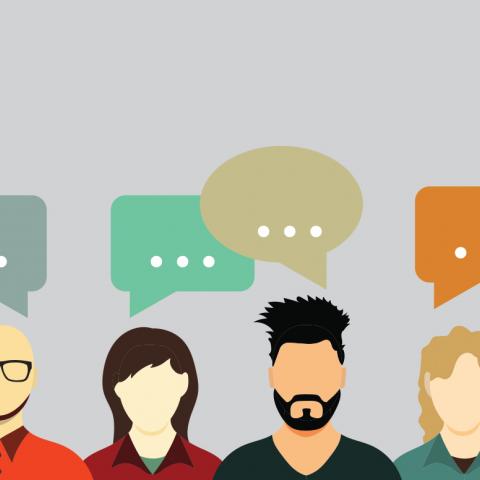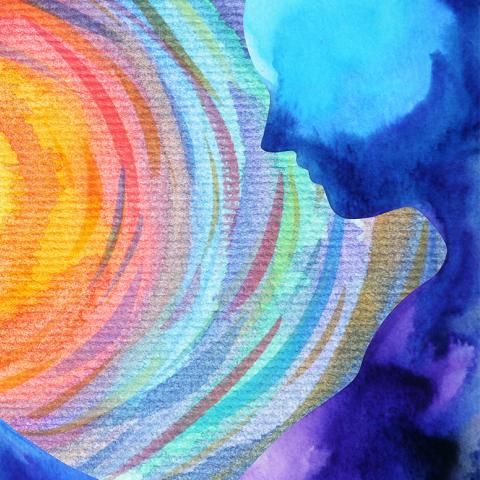Big Brains in 2021
It’s been a paradoxical period in America and the wider world. The last 18 months has seen reputable institutions and media outlets communicate essential research and attempt to contextualize current events and global challenges. Running counter to these advancements of public good was a growing din of rhetoric and misinformation which digital channels help amplify.
In a climate of increased suspicion and mistrust the Edelman Trust Barometer reports that academic experts are still viewed as reliable resources for accurate information, which is why the University of Chicago Office of Communications further expanded Big Brains — a podcast that communicates academic insights directly with a broader audience in an accessible way. Each 20-minute episode brings deeper insight to the listening audience by crafting a narrative that makes rigorous research not just understandable but meaningful.
Never has communicating the impact of research been more essential to the general public than now. As we experience the repercussions of a pandemic, consider social injustice, explore the frontiers of medicine, and discover new worlds at quantum and cosmic levels, ground-breaking academic research is only valued by the public to the extent that it is understood.
The Way You Talk—And What It Says About You, with Prof. Katherine Kinzler

The way we talk is probably not something most of us spend a lot of time thinking about, but when it comes to communicating, what we’re saying may only be as important as how we say it.
That’s what Prof. Katherine Kinzler of the University of Chicago argues in her new book, How You Say It: Why You Talk the Way You Do—And What It Says About You—an innovative exploration of how speech creates and deepens our social biases, starting from the point of view of children. With our national discourse focused on discrimination based on race, she says a largely overlooked aspect of that conversation extends beyond skin color: discrimination based on speech.
Why Life After Incarceration Is Just Another Prison, with Reuben Jonathan Miller

For the more than 20 million people with a felony record, incarceration doesn’t end at the prison gate. They enter what University of Chicago scholar Reuben Jonathan Miller calls the “afterlife” of mass incarceration.
Miller, an assistant professor at the Crown Family School of Social Work, Policy and Practice, is the author of a new book, Halfway Home: Race, Punishment and the Afterlife of Mass Incarceration—an intimate portrait that draws on his sociological research and personal experiences. It’s a unique sociological look at our system of mass incarceration and how it continues to imprison people after their sentence and also punishes their families.
From LSD to Ecstasy, How Psychedelics Are Altering Therapy, with Prof. Harriet de Wit

People have been taking psychoactive drugs since the beginning of human history, but there hasn’t been a lot of good scientific study of these substances. One person who has been trying to turn a scientific lens toward them is Prof. Harriet de Wit of the University of Chicago, and what she’s discovered is surprising.
The latest research shows that there may be more uses for drugs like MDMA and LSD than sending people on mind-altering trips. In fact, they could radically change how some people engage with therapy. De Wit also examines microdosing, why it is so popular, and whether it does what people suggest.
The Science of Conspiracy Theories and Political Polarization with Eric Oliver

The “birthers,” “Pizzagate,” anti-vaxxers. Since the election of Donald Trump, it’s seemed that belief in conspiracy theories is on the rise. At the same time, our polarization is worse than ever. People can hardly even maintain a conversation across political or cultural lines. Could the underlying force driving conspiracy theories also be the same one that’s dividing our country?
University of Chicago Political Science Professor Eric Oliver, who’s been studying conspiracy theories for over a decade, says his research shows how one basic tension explains both belief in conspiracy theories and our political divide. Deeper than red or blue, liberal or conservative, we’re actually divided by intuitionists and rationalists.
The ‘Five Horsemen of the Techpocalypse’ with Kara Swisher

The so-called “Big Tech” industry has dramatically improved our daily lives, but at what cost? Few people have gotten a closer look at these companies than Kara Swisher, writer for The New York Times and podcast host—and she says we need to wrestle more with that question.
Recently she shared her expertise with University of Chicago students as a fellow at the Institute of Politics. She taught a seminar called “The Five Horsemen of the Techpocalypse,” which examined Microsoft, Apple, Amazon, Google and Facebook. She recently joined the Big Brains podcast to give us her impressions of that experience, and to discuss the future of “Big Tech.”
COVID 2025
In the video series “COVID 2025: Our World in the Next 5 Years,” leading scholars at the University of Chicago discuss how COVID-19 will change health care and international relations, education and urban life, and many other aspects of our lives.






